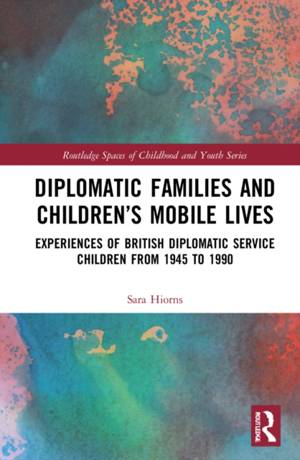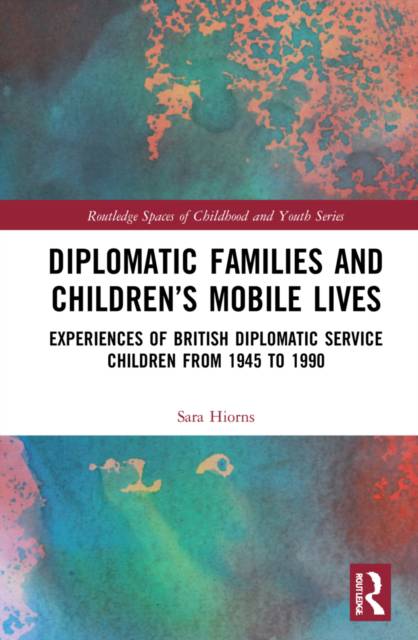
- Retrait gratuit dans votre magasin Club
- 7.000.000 titres dans notre catalogue
- Payer en toute sécurité
- Toujours un magasin près de chez vous
- Retrait gratuit dans votre magasin Club
- 7.000.0000 titres dans notre catalogue
- Payer en toute sécurité
- Toujours un magasin près de chez vous
Diplomatic Families and Children's Mobile Lives
Experiences of British Diplomatic Service Children from 1945 to 1990
Sara HiornsDescription
This book is the first of its kind: a historical inquiry into the family life of British diplomats between 1945 and 1990. It examines the ways in which the British Diplomatic Service reacted to and were influenced by the radical social changes that took place in Britain during the latter half of the twentieth century. It asks to what extent diplomats, who strove to protect their enclosed and elite circles, were suitable to represent this changing nation.
Drawing on previously unseen primary sources and interview testimony, this book explores themes of societal change, end of empire, second wave feminism, new approaches to childcare, and developments in the civil service. It explores questions of belonging and identity, as well as enduring perceptions of this organisation that is (often mistakenly) understood to be quintessentially 'British'.
Offering new and fresh insights, this book will be of interest to students and scholars in history, historical geography, political studies, sociology, feminist studies and cultural studies.
Spécifications
Parties prenantes
- Auteur(s) :
- Editeur:
Contenu
- Nombre de pages :
- 104
- Langue:
- Anglais
- Collection :
Caractéristiques
- EAN:
- 9780367221645
- Date de parution :
- 18-11-21
- Format:
- Livre relié
- Format numérique:
- Genaaid
- Dimensions :
- 156 mm x 234 mm
- Poids :
- 367 g

Les avis
Nous publions uniquement les avis qui respectent les conditions requises. Consultez nos conditions pour les avis.






